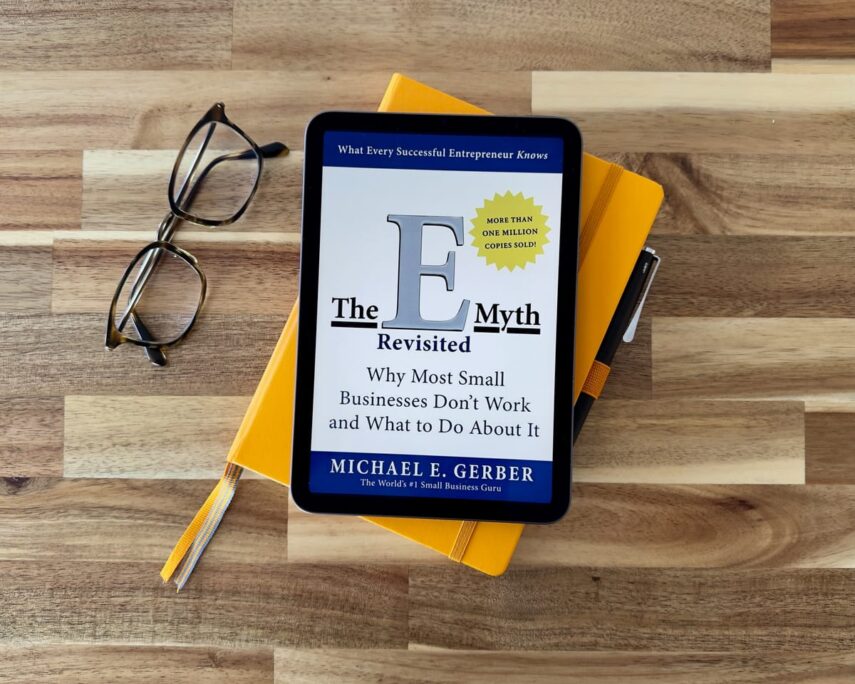In today’s fast-paced entrepreneurial landscape, continuous learning is not a luxury; it’s a necessity. Books remain a powerful personal and professional development tool, offering unparalleled insights into business strategies, psychology, and innovative thinking.
Whether you’re just nurturing a startup idea or seeking to scale your venture, the right books can serve as invaluable mentors.
Niles Garden aims to guide your reading journey by recommending ten must-read books that every aspiring entrepreneur should have on their bookshelf.
Why Reading Matters for Entrepreneurs

Entrepreneurship is a dynamic field that demands a commitment to ongoing education. In a world where markets fluctuate, technologies evolve, and consumer behaviors shift, the ability to adapt is crucial.
This is where the habit of reading becomes invaluable. Books offer a rich repository of knowledge, different perspectives, and a wide range of proven methodologies you won’t encounter otherwise. From mastering the art of negotiation to understanding consumer psychology, reading equips an entrepreneur with diverse tools to navigate challenges effectively.
Criteria for Book Selection
Several factors were considered in curating this list of must-read books for promising people to ensure a well-rounded reading experience.
First, the list aims to cover diverse industries, offering insights applicable across various sectors.
Second, the pieces of literature were chosen for their relevance to contemporary challenges, providing timely and timeless strategies. Third, practicality was a key consideration; these books offer actionable advice rather than theoretical discussions.
10 Must-Read Books for Aspiring Entrepreneurs

1. The Lean Startup by Eric Ries
“The Lean Startup” by Eric Ries revolutionizes how we look at startups and ventures. It advocates for a new approach, focusing on building a sustainable model through a systematic, scientific process for creating and managing successful startups.
It introduces the concept of “Lean Thinking,” which prioritizes adaptability and customer feedback from an early stage. This literature is essential for promising leaders because it provides a roadmap to minimize risks and make better, data-driven decisions.
It shifts the focus from just building a product to creating a scalable, viable company, teaching you how to adapt and adjust before large sums of money or time are invested.
2. Zero to One by Peter Thiel
“Zero to One” by Peter Thiel explores the idea that true innovation occurs when a company goes from “zero” to creating something entirely new (“one”). Thiel argues startups should aim to build monopolies and highlights the importance of unique startup ideas over-competitive, saturated markets.
For promising business people, this literature is crucial because it challenges conventional organizational wisdom. It urges you to think differently, aiming not just for incremental improvement but groundbreaking innovation. Reading this will guide you in identifying opportunities for unique value creation, helping you stand apart in a world of competition.
3. Thinking, Fast and Slow by Daniel Kahneman
“Thinking, Fast and Slow” by Daniel Kahneman delves into the intricacies of human decision-making by differentiating between two modes of thought: “System 1,” our fast, intuitive, and emotional system, and “System 2,” our slower, more deliberative, and logical system.
It helps you recognize cognitive biases affecting your professional decisions and equips you to balance intuition with analytical reasoning. Kahneman’s insights encourage a promising entrepreneur to take a nuanced approach to problem-solving and risk assessment, making the piece an indispensable tool for anyone navigating the complexities of running a startup.
4. How to Win Friends and Influence People by Dale Carnegie
“How to Win Friends and Influence People” by Dale Carnegie is a seminal work that lays out foundational principles for effective interpersonal relations. First published in 1936, its advice remains relevant today, teaching techniques for winning people over, influencing their thinking, and leading effectively.
The book is especially suitable for promising people who often navigate complex relationships with investors, team members, and customers. It provides actionable communication, negotiation, and leadership advice—indispensable skills for any successful venture.
By mastering the art of human relations, an entrepreneur can build more robust networks and foster a culture of collaboration and mutual success.
5. The Innovator’s Dilemma by Clayton Christensen
“The Innovator’s Dilemma” by Clayton Christensen explores why large companies fail despite good management and how startups can disrupt markets. It introduces the concept of “disruptive innovation,” where smaller companies can outmaneuver established businesses by targeting overlooked customer segments and scaling upwards.
This book offers an aspiring entrepreneur a critical framework for understanding market disruption and innovation. It provides actionable insights into when and how to disrupt an existing market or how to protect your venture from being disrupted.
6. The $100 Startup by Chris Guillebeau

“The $100 Startup” by Chris Guillebeau challenges the notion that launching a business requires significant capital and complex plans. Instead, it outlines how to start a successful venture with a modest investment. The book is based on case studies of entrepreneurs who built profitable ventures with minimal startup costs.
This literature is a game-changer for promising businessmen, particularly those constrained by limited resources. It demonstrates that ingenuity and a customer-focused approach can overcome financial limitations. Guillebeau empowers readers to turn their skills and passions into profitable businesses without breaking the bank by offering practical tips and action steps.
7. The Hard Thing About Hard Things by Ben Horowitz
“The Hard Thing About Hard Things” by Ben Horowitz offers a no-nonsense look at entrepreneurs’ difficulties and challenges, particularly issues that business schools don’t typically cover. Horowitz uses his experiences in the tech industry to offer invaluable lessons on problem-solving, crisis management, and leadership under pressure.
This literature is essential for promising people who want to start a startup because it prepares you for the inevitable hurdles and challenging decisions you’ll encounter. While many literatures focus on starting businesses, this one educates you on how to sustain and grow one amidst challenges, making it essential reading for a realistic view of entrepreneurship.
8. The 4-Hour Workweek by Tim Ferriss
“The 4-Hour Workweek” by Tim Ferriss presents a radical approach to lifestyle design and financial freedom. Ferriss argues that you don’t have to wait for retirement to enjoy life; instead, you can outsource tasks and automate businesses to achieve more by working less.
The book offers aspiring entrepreneurs a different perspective on work-life balance and professional automation. It encourages you to question conventional career paths and think creatively about income generation and time management.
9. The E-Myth Revisited by Michael E. Gerber

“The E-Myth Revisited” by Michael E. Gerber addresses the myths surrounding entrepreneurship and why most small businesses fail. Gerber introduces the concept of working “on” your business instead of “in” it, emphasizing the importance of systematization and scalable processes.
Reading this is crucial for aspiring entrepreneurs because it shifts the focus from crafting a product or service to building a sustainable organizational model. Gerber argues that they often get caught up in day-to-day operations, neglecting strategic planning.
10. Good to Great by Jim Collins
“Good to Great” by Jim Collins examines why some companies leap from mediocrity to excellence and why others fail to do so. Through rigorous research, Collins identifies critical characteristics that differentiate great companies, such as “Level 5 Leadership” and the “Hedgehog Concept“, which focuses on doing one thing exceptionally well.
Reading this is invaluable as it outlines a roadmap for organizational excellence. It emphasizes that going from a good to a great company isn’t about charismatic leaders or flashy products but about disciplined choices and consistent focus.
How to Get the Most Out of Your Reading
Maximizing the benefits from your reading involves more than just flipping pages; it’s about active engagement and application. Start by setting clear goals for what you hope to gain from each book.
Take notes, highlight key points, and, most importantly, apply the insights to your entrepreneurial journey. After finishing a book, discuss its ideas with peers or mentors to gain different perspectives.
Consider revisiting the most impactful titles yearly, as different stages of your business will render new lessons from the same book. The aim is to consume and integrate information into your business strategy and operations.








